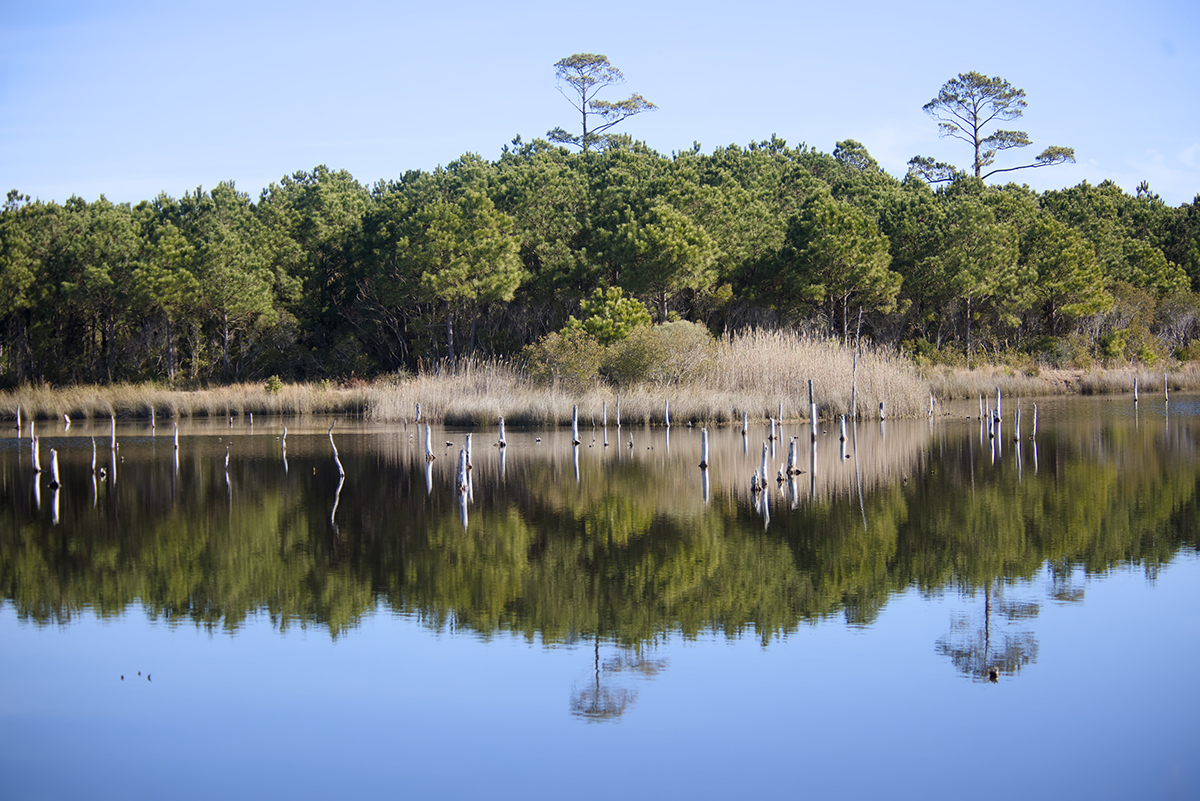Eight years ago a business lobbyist who had formerly worked for then Gov. Mike Easley called just as I was leaving the office for the day. He said he wanted to give me a “heads-up” that a major new industry was about to announce plans to locate in Wilmington, and that it would be a wonderful economic stimulus for southeastern N.C. He assured me that the company would be a good coastal steward, and encouraged the N.C. Coastal Federation to welcome the project.

The next day Titan America, a Greek international conglomerate, announced its plans to build one of the nation’s largest cement kilns and limestone mines next to the Northeast Cape Fear River just upstream of downtown Wilmington. Secret meetings with state and county leaders had already “cemented” the deal with the company, including securing a commitment for over $4 million in government incentives to entice Titan to locate in New Hanover County. The political and business establishment had worked out the arrangement, and the company thought it would be operating by 2012. The only people not consulted in advance were the residents and visitors of the communities who would be directly affected by the company.
Supporter Spotlight
Titan, by their own words, expected to be welcomed with open arms. But within hours after the project was announced, many people began asking serious questions about what the company would do to the region’s quality of life and environment. What emerged was a passionate grassroots Stop Titan coalition of residents, civic organizations, businesses, medical professionals and environmental groups that started asking hard questions about why a dirty, extractive industry that could pollute the air and water and dry up the region’s groundwater supplies would be welcomed to our coast.
At that time, New Hanover County had antiquated zoning that simply rubber stamped all heavy industry, even if it might be dirty and dangerous as a neighbor. This rapidly growing and evolving county is blessed with a natural environment that attracts vibrant high-tech, service, academic, retirement and tourism businesses. It hadn’t yet come to terms with how to encourage this desirable growth and protect it from potentially polluting industry.
Given the existing support for Titan among most county elected leaders, public concerns about the proposal were at first fiercely directed at federal and state permitting agencies that are responsible for protecting water and air quality, wetlands and groundwater. In addition, local residents went to the N.C. General Assembly asking for help. Thousands of people attended public hearings, and before long Titan’s efforts to obtain numerous environmental permits were stymied. At that point, the company put all its energy into getting its air quality permit.
And even as “anti” regulatory initiatives became more prevalent at the state level, the Titan controversy moderated some attempts to rollback state mandated environmental safeguards as lawmakers were careful not to weaken laws that would make it easier for Titan to locate in coastal N.C.
As the years rolled by, the local officials that welcomed Titan were not re-elected or retired. A new set of county commissioners realized that more local control over heavy industry was essential, and they adopted a special use permit as part of the zoning ordinance similar to ordinances that already existed in neighboring Brunswick and Pender counties. This new local permit process enables the county board to protect public health and welfare and gives it the authority to either approve or deny industrial proposals such as Titan. With the adoption of this ordinance, Titan became even more dormant and quiet. The only regulatory activity that remained active was litigation over its air quality permit that is still pending.
Supporter Spotlight

Maintaining a high level of public engagement for eight years as Titan became increasingly quiet was quite a challenge. The coalition turned its attention to promoting sustainable economic development, improving the special use permit, obtaining additional recognition and protection for the region’s wonderful natural assets and to protecting fragile and limited potable groundwater supplies.
So when word came a couple of weeks ago that Titan was calling it quits, coalition members were hugely relieved that their exhausting fight was over. After the initial celebration, everyone soon realized that while this battle was won the conditions that had caused this fight still existed and remain a threat to the region.
Better environmental safeguards and a clear vision for what types of economic development to be recruiting are still needed before the next Titan-like project comes along and threatens the region.
Titan was a “Goliath,” toppled by ordinary people who waged an extraordinary campaign to protect their quality of life and environment. It took a huge amount of energy and funding to win this battle. Now is the time to focus the coalition’s energy on building a strong and vibrant economy that is compatible with the coast’s fragile environment. The goal is to keep the Cape Fear coastal region one of the best places to live, work and play in the world.
Over the years, the N.C. Coastal Federation was privileged to help lead this coalition that held public officials accountable and stimulated constant public discussions about the best economic and environmental future for our coast. Private foundations were wonderful partners helping to fund research, legal work and outreach campaigns. The Wilmington Star-News observed that: “Anti-Titan efforts have made it clear that environmental groups in our region are a force to be reckoned with.”
The Orton Foundation’s support for the federation and other nonprofits in the Cape Fear region facilitates this focus on protecting the region’s unique natural and cultural attributes. Through this work, the foundation supports an emerging vision for the Cape Fear region that recognizes the important role our natural resources play in shaping our productive economy and wonderful quality of life.







